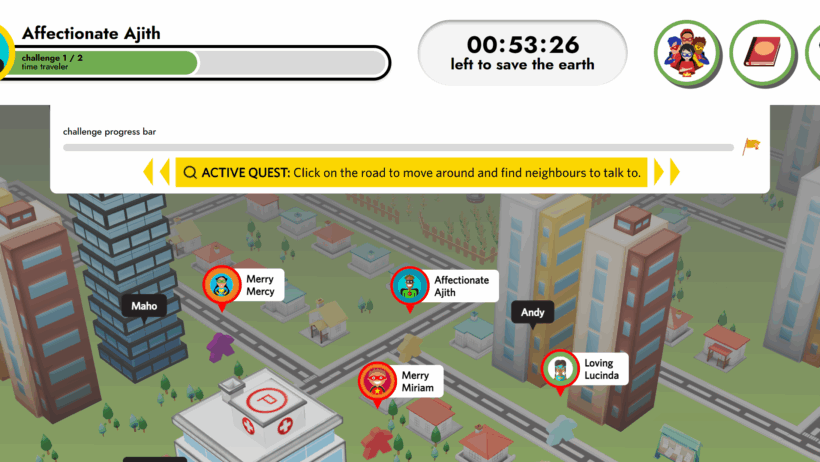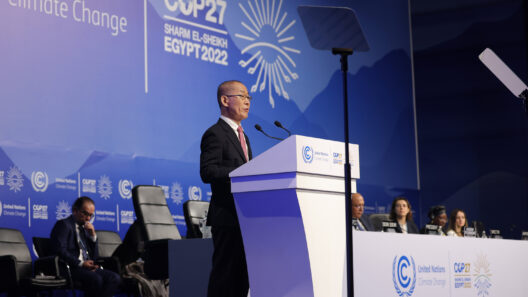In an intricate tapestry woven with threads of carbon emissions, industrial waste, and biodiversity loss, the phenomenon of global warming stands as a poignant reminder of humanity’s imposition on Earth’s delicate equilibrium. However, each individual possesses the potential to be a transformative force in this narrative—a climate hero. This guide will illuminate avenues through which you can contribute to mitigating this pressing crisis, fostering a more sustainable world for future generations.
Understanding the crux of global warming requires an appreciation of its underlying causes. At its core, global warming is the result of an augmenting concentration of greenhouse gases in the atmosphere. These gases, primarily carbon dioxide and methane, act like a thick blanket encasing the Earth, trapping heat and precipitating climatic shifts. The symbiosis between human activity and natural systems emphasizes the profound impact of our choices. As a climate hero, your endeavors become a part of an essential counter-narrative—a rebellion against apathy and excessive consumption.
1. Embrace Sustainable Transportation
Transportation is an irrefutable contributor to greenhouse gas emissions. By substituting gas-guzzling vehicles with more sustainable alternatives, one can instigate meaningful change. Opt for public transport, bicycle commuting, or carpooling whenever feasible. Electric vehicles, although initially more expensive, offer long-term savings and lower emissions. Consider your transportation habits as a dance with the environment; each step taken towards sustainability gracefully pirouettes away from pollution.
2. Reduce, Reuse, Recycle
The mantra of reducing, reusing, and recycling—often repeated but rarely executed to its fullest potential—holds untold power. Commence with a critical examination of your consumption patterns. The reduction phase entails minimizing waste and scrutinizing purchases. Transitioning to reusable items, such as cloth bags or stainless-steel bottles, decreases demand for single-use plastics. Recycling should not be an afterthought but rather an intrinsic part of your lifestyle, turning waste into resources rather than landfill fodder. This triad is akin to a restorative cycle, breathing life back into the environment.
3. Advocate for Renewable Energy
Energy production remains a cornerstone of anthropogenic greenhouse gas emissions. Transitioning from fossil fuels to renewable energy sources is one of the most critical steps toward sustainability. Whether advocating for community solar projects or installing solar panels on your home, each action contributes to a larger shift. Sign petitions, support clean energy initiatives, and educate others about the benefits of wind, solar, and geothermal energy. You are not just an observer in the energy landscape; you become a lighthouse beacon guiding society toward a brighter, cleaner future.
4. Alter Dietary Choices
Our dietary habits are inextricably linked to climate change. The livestock industry is a significant producer of methane and requires extensive resources for animal husbandry. By reducing meat consumption or adopting a plant-based diet, one can dramatically decrease their carbon footprint. A single meal can ripple through the environment, with a less carbon-intensive diet acting as a preventative salve against warming. The kitchen transforms into a battleground where conscious choices can bring about profound ecological health.
5. Cultivate Eco-Friendly Spaces
An alluring aspect of your home can be its ecological footprint. Embrace gardening, utilizing native plants that require fewer resources and provide habitats for local fauna. Urban dwellers can engage in community gardening, thereby fostering a sense of connectivity while enhancing local biodiversity. In landscapes marked by asphalt and concrete, even a small patch of greenery serves as an oasis, aiding in carbon sequestration and local climate moderation. Cultivating these spaces positions you as a steward of the land, nurturing both flora and fauna.
6. Educate and Engage
Knowledge is a formidable weapon in the fight against climate change. Arm yourself with facts, statistics, and narratives that resonate. Share insights with your community through workshops, social media, or informal discussions. Engage local leaders and advocate for policies that promote sustainability. Be the catalyst that ignites critical conversations around environmentalism. Remember that each drop of awareness contributes to a rising tide of sentiment that may ultimately influence policy and collective action.
7. Support Sustainable Businesses
Your purchasing power is an unassuming yet potent tool. By intentionally supporting sustainable businesses that prioritize environmentally sound practices, you amplify responsible consumption. Look for certifications like Fair Trade, organic labels, or carbon neutrality. These choices send a strong message about demand for eco-friendly products, shaping the business landscape. You become a compass guiding industries toward ethical practices, wielding influence with every dollar spent.
8. Contribute to Carbon Offset Programs
For those aspects of life where emissions cannot be completely eliminated, consider investing in carbon offset programs. These initiatives fund projects that reduce greenhouse gases, such as reforestation or renewable energy developments. While acknowledging that a perfect lifestyle may not exist, offsets can help balance your footprint, embodying a philosophy of taking responsibility while driving change. This approach is reminiscent of tending a garden, planting seeds of sustainability in areas still in need of growth.
9. Stay Informed and Adaptive
The landscape of climate science is fluid and ever-evolving. Remaining informed about new research, legislative changes, and environmental challenges is paramount. Join forums, subscribe to environmental journals, and engage with movements advocating for climate justice. Adaptability is key; strategies that once seemed effective may evolve. As a climate hero, being knowledgeable and flexible allows you to remain proactive and relevant in your efforts.
In summary, becoming a climate hero is not merely an aspiration but a responsibility we collectively hold. Each action taken—however small—creates ripples in the environmental cosmos, forging a path toward a more sustainable future. The weight of global warming is grand, yet the potential for change lies within each individual. Conjuring the spirit of ecological stewardship and advocacy, we may yet alter the trajectory of our planet’s fate. Each of us has the power to turn the tide; it is a call to arms—to transform every challenge into an opportunity, every hurdle into a stepping stone towards a greener tomorrow.







